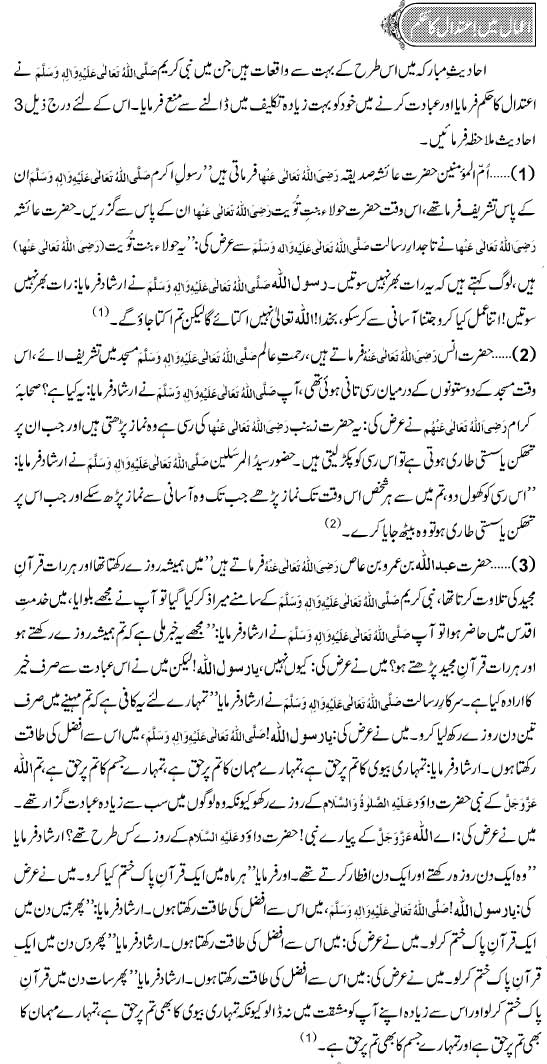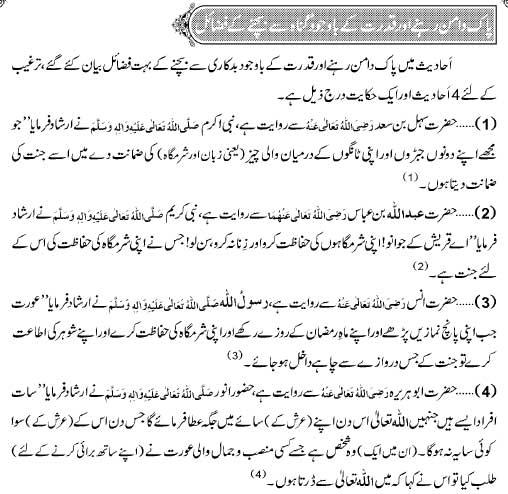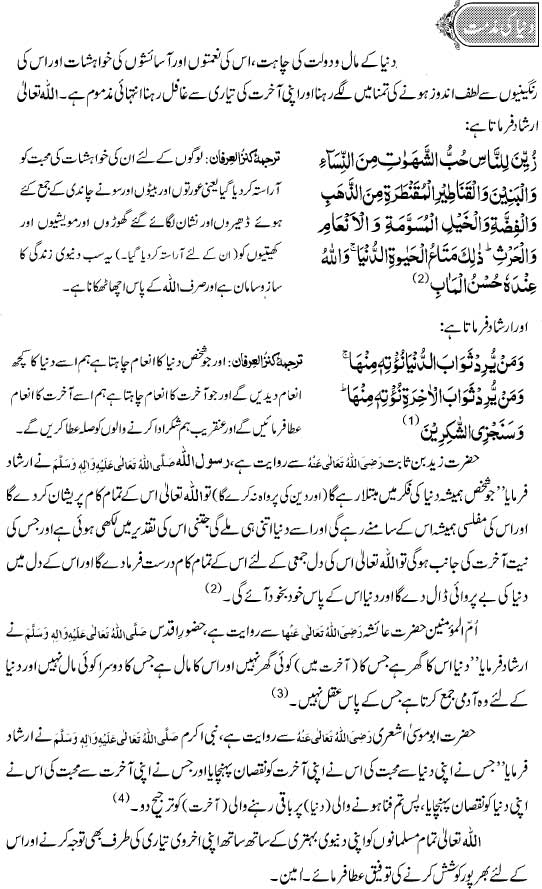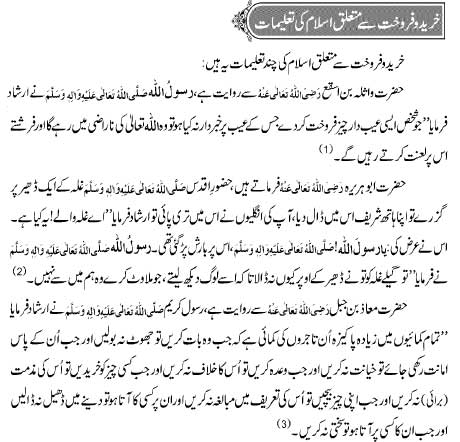
Your Wife And Kids
Abu Saeed Khudri (radhiyallahu anhu) reported that Rasullullah (The Messenger of Allah) has said that whosoever spends anything on his family members for reward, will enjoy the divine credit of charity. (Bukhari, Muslim)
It is described by Abu Huraira(radhiyallahu anhu) that Mohammed (sallallahu alaiyhi wassallam) has said that, to spend on one’s wife, has great merit than giving charity to male and female slaves and beggars. (Muslim)
Abdullah bin Masood (radhiyallahu anhu) reported that the greatest preference is to spend on one’s wife and children which is necessary and then it should be spent on close relatives. (Tibrani)
It is narrated in the extract of Arbez bin Saarya(radhiyallahu anhu) that even to give water to one’s wife is charity.
Abu Huraira (radhiyallahu anhu) reported that someone asked Rasullullah(sallallahu alaiyhi wassallam) that he had one gold coin with him, where should he spend it ? Rasullullah(sallallahu alaiyhi wassallam) said that he should spend it on himself. The man said that he had one more and Mohammed(sallallahu alaiyhi wassallam) said that he should spend it on his wife. The man again said that he had yet another and Rasullullah(sallallahu alaiyhi wassallam) said ,that he should spend on his servants. The man said that he had a fourth and Rasullullah(sallallahu alaiyhi wassallam) said that he should spend it, on whatever he preferred. (Ibn Habban)
Sa’ad bin Waqqas(radhiyallahu anhu) reported that Mohammed (sallallahu alaiyhi wassallam) said that whosoever spends his money to gain Allah’s pleasure and goodwill, gets the credit of charity so much that even a morsel which he puts in the mouth of his wife, has the credit of charity. ( Bukhari, Muslim)
- December, 19
- 2612
- Human Rights
- More
The Manners Of Going To The Bathroom
Salmaan (ra) said, (One of) the disbelievers said to us, Verily, we see that your companion (the prophet sallallahu alaihi wasallam) even teaches you how to relieve yourselves. Salmaan (ra) answered him, Yes, he forbids each of us from cleaning himself (after urinating or defecating) with his right hand and from facing the Qiblah (during the act of urinating or defecating). And he prohibited the use of manure or bones (for cleaning). And he (sallallahu alaihi wasallam) said.
Let no one from you clean himself (after having a bowel movement) with less then three Stones. (Related by Muslim (262) Ahmad (23191)
It Is Disliked To Take Into The Toilet (Or Any Place That Is Commonly Used For The Same Purpose) Anything That Has The Remembrance Of Allah (swt) In It.
To preserve Allah’s Name from abuse and debasement, you should not take into the toilet anything that has the remembrance of Allah (swt) in it, unless you have a valid Islamic excuse, in which case doing so is not Makrooh (disliked). So for example, if in your pocket, you have paper money that has Allah’s Name written on it, and if you are about to enter a public washroom, you most likely have no choice but to take the money with you inside. By leaving the money outside of the washroom, you might later forget, and if the door to the washroom is on the outside of a building, the money might blow away. Furthermore, if there are other people around, there is a chance of theft. All of these reasons apply to money or to anything else that has Allah’s Name written on it.
As of a Mushaf (compy of the Quran), it is without a doubt forbidden to take it inside of a place that is regularly used as a toilet. Scholars agree on this point, though they ruled that it is permissible to take it inside if one fears that, left outside, it will be stolen. Nonetheless, a Muslim must fear (swt) and try his best to keep Allah’s Speech safe from debasement. He should try his best to find an alternative solution, such as giving the Mushaf as a trust to someone until he comes out. But if there is no alternative, then Allah (swt) does not charge a soul with more than it can bear.
Pak Daman Rehnay Aur Gunnah Say Bachney Kay Fazail

Deen Tu Naam Hi Ikhlas Ka Ha

What Do Muslims Believe About Allah?
What do Muslims believe about Allah?
- He is the one God, Who has no partner.
- Nothing is like Him. He is the Creator, not created, nor a part of His creation.
- He is All-Powerful, absolutely Just.
- There is no other entity in the entire universe worthy of worship besides Him.
- He is First, Last, and Everlasting.
- He is the All-Knowing, and All-Merciful, the Supreme, the Sovereign.
- It is only He Who is capable of granting life to anything.
- He sent His Messengers (peace be upon them) to guide all of mankind.
- He sent Muhammad (peace be upon him) as the last Prophet and Messenger for all mankind.
- His revealed the Qur’an – the only remaining authentic divine book in the world that has been kept without change.
- Absolutely nothing is hidden from Him. He knows what is in our hearts.
Some basic guidelines Muslims follow in their knowledge of God:
- Eliminate any anthropomorphism (human qualities) from their conception of Allah. His attributes are not like human attributes. His names and attributes suit His Majesty.
- Have unwavering faith in exactly what Allah and Prophet Muhammad (peace be upon him) described Allah to be, no more, no less.
- Believe totally in all the names and attributes of Allah; one cannot believe in some and disbelieve the others.
- Similarity in names (or meanings) does not imply similarity in what is being described (referents). His speech is nothing like human speech, etc.
Solution: Morals Of the Holy Qur’an
There are people who are persecuted and tortured to death: innocent babies, people who cannot even afford a loaf of bread, who sleep in cold weather, in tents and even on the streets, who cannot afford medical treatment, or who, despite being old and weak, have to wait for hours, or even days, for hospital care, people who are killed just for belonging to a certain race, women, children and old people who are thrown out of their homes because of their religion, enormous extravagance alongside poor people suffering from starvation and neglect, who are just left to die, children too young and defenseless to be able to look after themselves, children who leave school to work or beg for money to help their families survive, people who live with the constant fear of being slaughtered by their enemies.
Everybody is aware of the existence of such people as these. Almost every day we come across pictures of these helpless, miserable, homeless, and needy people in the papers or on TV. Many people see their plight and pity them. However, they then either turn off the channel they have been watching, or else they turn over the pages of the newspaper they have been reading and forget they exist once more.
Most people never think that they have to make an effort to save these people from the terrible conditions they live in. They ask, “Is it up to me to save these people when there are so many rich and powerful people in the world?” and leave the responsibility to others.
However, prosperity and power alone are not enough to save these people and to make this world a place where justice, peace, security, and well-being prevail. For instance, despite the existence of many rich and developed countries in the world, people in Ethiopia are still dying from hunger. That people are still going hungry despite the present advanced state of technology and the many resources in the world is a clear indication that wealth and power by themselves are not enough.
In order for wealth and power to be used for the well being of these poor and needy people, first of all, we have to be conscientious. The sole way of being conscientious is through belief. Only if people who believe consistently and act conscientiously can there be a solution to injustice, chaos, terror, massacres, hunger, poverty, and oppression. The one solution is the morals of the Qur’an.
When we look at the problems in the world in general, we see that they are all caused by feelings such as hatred, malice, antagonism, self-interest, selfishness, indifference, and cruelty. The way to finding a solution to these and eliminating them lies in love, compassion, mercy, pity, the zeal to serve without expecting anything in return, sensitivity, sacrifice, brotherhood, tolerance, reason, and wisdom. These traits are only found in those who fully live by the morals in the Qur’an. In one of His verses, Allah refers to the Qur’anic aspect of leading people out of darkness to light:
” . . . Indeed there has come to you from Allah a light (Prophet Muhammad, peace be upon him) and a plain Book (this Qur’an). Wherewith Allah guides all those who seek His Good Pleasure to ways of peace, and He brings them out of darkness by His Will unto light and guides them to the Straight Way (Islamic Monotheism).” (Al-Ma’idah 5:15-16)
In another verse, Allah states that everything which conflicts with the Qur’an will end in corruption and confusion:
“And if the truth had been in accordance with their desires, verily, the heavens and the earth, and whosoever is therein would have been corrupted! Nay, We have brought them their reminder, but they turn away from their reminder.” (Al-Mu’minun 23:71)
At the very moment you are reading this, millions of poor people are either suffering, or trying to avoid dying from hunger or cold. Or else they are being torn away from their homes, families and children, and forced to leave their homelands.
For this reason, conscientious people must think about all this and act as if these troubles, adversities, and hardships had befallen themselves or their loved ones. Or they must look for ways to help those who ask for spiritual or material help. In the following verse, Allah orders conscientious and faithful people with common sense to assume this responsibility:
What reason could you have for not fighting in the way of Allah – for those men, women and children who are oppressed and say, “Our Lord, take us out of this city whose inhabitants are wrongdoers! Give us a protector from You! Give us a helper from You!” (An-Nisa’ 4:75)
The most important thing for Muslims to do is to struggle in the intellectual domain so that the morals of the Qur’an prevail against lack of religion. The only salvation for the weak, helpless, homeless, and destitute is the widespread practice of the morals of the Qur’an by all the people of the world. For this reason telling people about the morals in the Qur’an and communicating the message is a very important and pressing way of worshipping for all Muslims. As is also stated in the Qur’an : “And Our duty is only to convey plainly (the Message).” (Ya-Sin 36:17).
Those who do not use their consciences, who behave indifferently and uninterestedly towards orphans, the poor, and the unhappy, who spend the possessions given to them on vain things in the life of this world, who coldly watch women, children and old people under oppression, who feel happy at the spread of all kinds of immorality and ugliness in the world, and who encourage this point of view, will certainly account for all that in the hereafter as Allah says in the following verses:
Have you seen him who denies the Recompense? That is he who repulses the orphan (harshly) and urges not on the feeding of Al-Miskin (the poor). So woe to those performers of Salat (prayers) (hypocrites). Those who delay their Salat. Those who do good deeds only to be seen (of men). And withhold Al-Ma’un (small kindnesses like salt, sugar, water). (Al-Ma`un 107:1-7)
Dunya Ki Muzammat

Follow The Path Of Knowledge
[Quran – 19:76] “God strengthens in guidance those who have sought and found guidance. The righteous, good deeds of lasting merit are best in your Lord’s sight for reward, and best for returns.”
The Prophet (Peace Be Upon Him) has said:
[Anas bin Malik, Al-Hadis, 1:351] “Prophet Muhammad (peace be upon him) as reported by Anas bin Malik, “He that follows the path of knowledge shall find Allah easing the path to Paradise for him.”
[Muslim, Book #035, Hadith #6518] “Abu Huraira reported Allah’s Messenger (may peace be upon him) as saying: He who alleviates the suffering of a brother out of the sufferings of the world, Allah would alleviate his suffering from the sufferings of the Day of Resurrection, and he who finds relief for one who is hard pressed, Allah would make things easy for him in the Hereafter, and he who conceals (the faults) of a Muslim, Allah would conceal his faults in the world and in the Hereafter. Allah is at the back of a servant so long as the servant is at the back of his brother, and he who treads the path in search of knowledge, Allah would make that path easy, leading to paradise for him and those persons who assemble in the house among the houses of Allah (mosques) and recite the Book of Allah and they learn and teach the Qur’an (among themselves) there would descend upon them the tranquillity and mercy would cover them and the angels would surround them and Allah makes a mention of them in the presence of those near Him, and he who is slow-paced in doing good deeds, his (high) descent does not make him go ahead.”
Khareed-o-Farokht Say Mutaliq Islam Ki Taleemat


